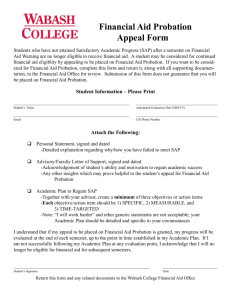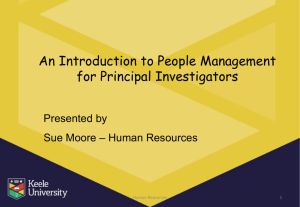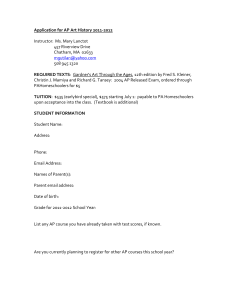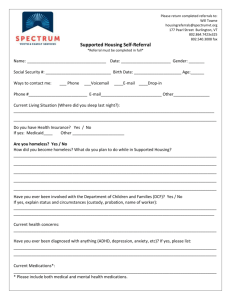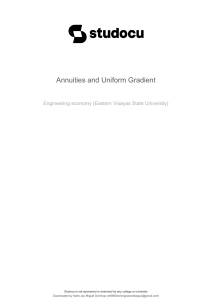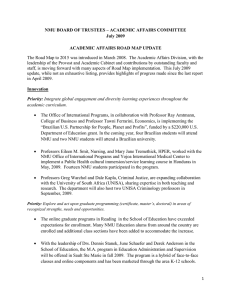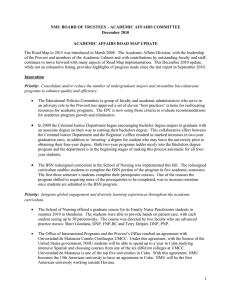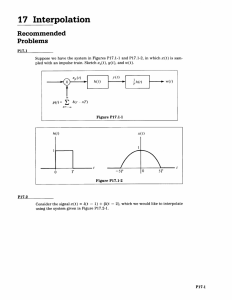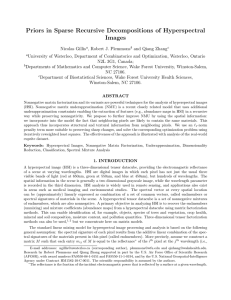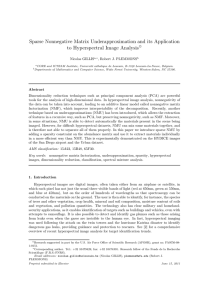10 Easy Ways to Earn Academic Probation
advertisement
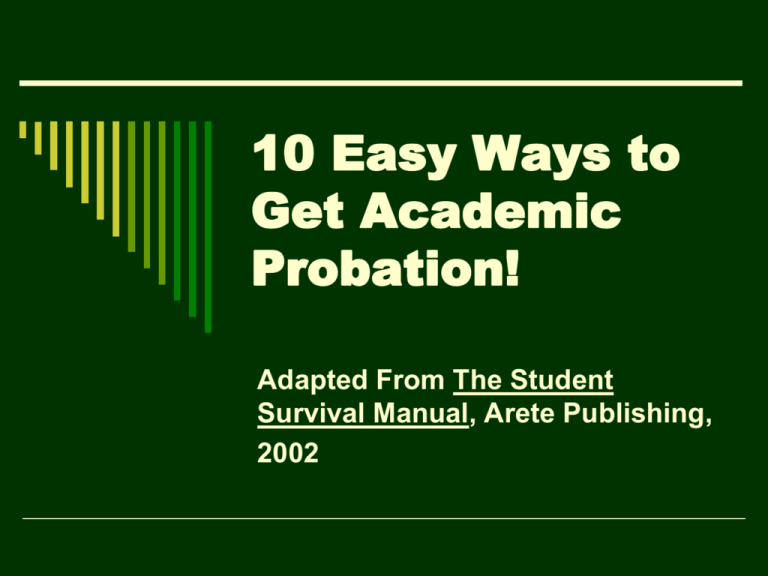
10 Easy Ways to Get Academic Probation! Adapted From The Student Survival Manual, Arete Publishing, 2002 What is Academic Probation? Students are placed on Academic Probation when their cumulative GPA falls below 2.0. Academic Probation can lead to Academic Suspension. Let’s cover the top 10 things you SHOULD NOT DO if you want to remain in good academic standing. 1. Vent academic frustration by throwing stuff around the dorm or punching your roommate. “Conduct violations” can get you suspended or arrested – which is bound to hurt your grades! Time spent venting is time NOT spent productively – what are some more constructive ways to respond? 2. Plagiarize other people’s work instead of doing it yourself. What is plagiarism? “No students shall submit as their own to an instructor any work which contains ideas or materials taken from another without full acknowledgement of the author and the source.” What is the penalty? “penalty: not less than disciplinary probation; not more than expulsion” -Quotes from NMU Student Handbook, 2.2.3 3. Study while talking with your friends for hours; complain about poor grades, lousy instructors, and non-existent social life. Problem #1: Noise, distractions interfere with retention of information. Can anyone say Facebook? MySpace? Twitter? Wikipedia? JuicyCampus? Problem #2: Complaining means not taking responsibility. Work on the stuff you can control, NOT the stuff you can’t. 4. Study with music at full volume, while watching a TV show about people trying to be instant millionaires. DITTO, info from previous slide. Music, TV, wishful thinking are okay, just don’t let them interfere with your scheduled study time! How about YouTube? 5. Play pool 5 hours a night--while consuming beverages that dull your mind—and release your “true feelings” to anyone unlucky enough to have to listen to you. Problem #1: Time management Problem #2: Alcohol interferes with retention of information, athletic performance. Problem #3: Possible conduct violations Problem #4: Burn out your friends! 6. Act as if the paper you copied from the internet was your own. HEY, didn’t we already talk about plagiarism!? If anything, the dawn of internet technology has made professors and college administrators MORE edgy about academic dishonesty. If you don’t know how to cite your sources, ASK! (Professors, LRC staff) 7. Use a classmate’s exam paper “for reference” when taking a test. More academic dishonesty: “No students shall, during the course of a quiz or examination (1) offer information of any kind to another student; (2) take and/or receive information of any kind from another student, or from the quiz or examination responses made by another student.” NMU Student Handbook, 2.2.3 Besides, is THIS what you want your education to be? 8. Skip class, because you have better things to do that day. Regular class attendance and participation may increase your GPA by nearly a full point (e.g. from a “B” to an “A”) Many professors build their test questions directly from lecture content. You are paying for your education…you want to get what you pay for. What are some other reasons to attend class regularly? 9. Keep study time to a minimum– except before exams, when you skip sleep to study all night. Conventional wisdom: two hours of study time for each hour (credit) of class. College moves fast. Getting behind on assignments or on reading/understanding the textbook is DEADLY. Top test performance depends on your being well-rested and in good health. Cramming MAY SOMETIMES help with short-term retention, not long-term learning. 10.Make sure you get poor grades by catching up on much-needed sleep during class lectures. You’ll miss out on learning AND offend the professor at the same time! You are responsible to manage your schedule. If you need help managing your time, refer to the time management resources here: www.nmu.edu/acac. This PowerPoint presentation is the property of Northern Michigan University’s Academic & Career Advisement Center. It may not be reproduced without written consent. www.nmu.edu/acac

